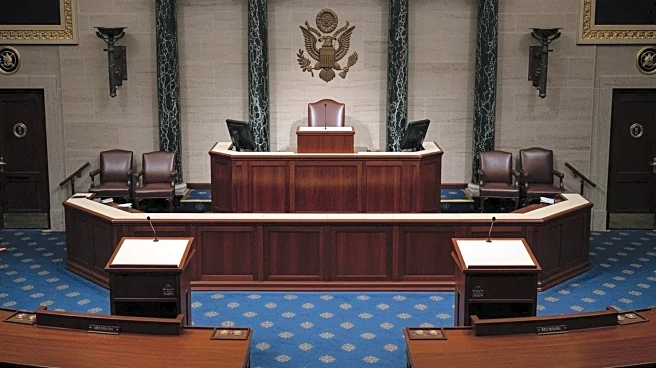What's Happening?
The U.S. Senate rejected a GOP-led short-term funding resolution, extending the government shutdown into its third week. The vote, which failed to pass, reflects ongoing disagreements between Republicans and Democrats over budget provisions. Republicans are
advocating for a 'clean' continuing resolution to reopen the government, while Democrats seek to include extensions for Affordable Care Act subsidies. The impasse has led to layoffs and financial uncertainty for federal employees, with the Trump administration attributing job cuts to the lack of agreement on funding.
Why It's Important?
The prolonged government shutdown has significant repercussions for federal employees and public services. The inability to reach a funding agreement highlights the challenges of political polarization and its impact on governance. The shutdown affects various sectors, including military families, nutrition assistance programs, and insurance services, underscoring the need for a resolution to mitigate further disruptions.
What's Next?
The continuation of the shutdown increases pressure on lawmakers to negotiate a compromise. The situation may lead to heightened public scrutiny and demands for accountability from political leaders. As the shutdown persists, stakeholders may intensify efforts to advocate for a resolution, with potential developments hinging on negotiations between the opposing parties.















